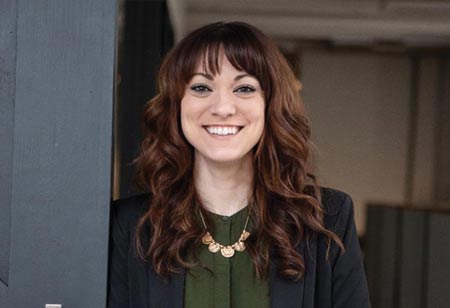

Thank you for Subscribing to Hospitality Business Review Weekly Brief

Katelynn Herndon is a seasoned hospitality procurement leader with nearly 20 years of industry experience. As Corporate Procurement Manager for the Kessler Collection, she oversees FF&E procurement for renovations, new builds, capital projects and operations across the brand’s luxury boutique hotels. With expertise in strategic sourcing, vendor negotiations and supply chain resilience, she ensures seamless project execution while maintaining brand integrity.
Katelynn is passionate about bridging design vision with operational functionality, leveraging technology and strong supplier partnerships to deliver high-impact procurement solutions that enhance the luxury guest experience. Her deep understanding of the hospitality landscape enables her to navigate complex project demands while ensuring exceptional guest experiences through thoughtful, high-impact procurement solutions.
Through this article, Herndon emphasizes the importance of balancing design intent with budget realities in hospitality procurement while proactively managing supply chain disruptions and leveraging technology for efficiency.
Navigating Supply Chain Disruptions In Hospitality Procurement
One of the biggest challenges in hospitality procurement is balancing design intent with budget realities, mainly when working with high-end materials and custom pieces. Maintaining a unique vendor bid list helps navigate and meet both needs. Supply chain disruptions, fluctuating tariffs and extended lead times are frequent challenges we all face. At Kessler, we proactively foster strong vendor relationships, diversify our sourcing strategies, and leverage bulk purchasing power where possible. Keeping a close eye on trade regulations and tariff adjustments also allows us to anticipate cost shifts and adjust procurement strategies accordingly.
Aligning Procurement Strategies With Brand Identity
Think beyond cost and prioritize value. It’s easy to get caught up in cost-cutting and VE exercises, but quality and guest perception are critical. Choosing durable, well-crafted furniture and premium materials reduces long-term replacement costs and allows for the longevity of the property’s overall quality.
Slow Down’” Is Not Often Used In Hospitality Procurement. But Take A Beat. Truly Consider The Overall Vision And End Use Before Defining Your Procurement Approach To Any Project
“Slow down” is a phrase not often used in hospitality procurement. But take a beat. Truly consider the overall vision and end-use before defining your procurement approach to any project. Aligning your procurement strategy with brand identity and guest expectations should always be a top priority. If guests expect bespoke, handcrafted elements, procurement teams should work with artisan vendors rather than mass-market suppliers.
Staying ahead of industry trends is always good procurement practice. The luxury hospitality industry evolves rapidly and procurement teams should always keep a pulse on emerging trends in design, technology and guest expectations. Being proactive rather than reactive allows procurement teams to contribute to the brand’s continued evolution.
Understanding Supplier Behavior To Improve Purchasing
Procurement isn’t just about numbers; it’s about people. Understanding supplier behavior and decision-making patterns can strengthen relationships, improve negotiations and drive better results. For example, reciprocity plays a key role. Suppliers who feel valued are more likely to prioritize your needs.
Internally, habit-based sourcing can lead to inefficiencies. Procurement teams should regularly challenge assumptions, analyze data and reassess supplier performance to ensure the best value. Generally, it’s about moving beyond transactions and creating more strategic, value-driven partnerships.
Leveraging Real-Time Insights For Smarter Spending
Technology has revolutionized procurement, making it more strategic, transparent and efficient. In luxury hospitality, it plays a critical role in maintaining consistency across properties while preserving each hotel’s uniqueness.
Centralized procurement platforms streamline vendor management, track supplier performance and provide real-time insights into spending. This allows us to make proactive decisions that enhance operational efficiency without sacrificing the curated, high-touch details that define a boutique luxury experience.
Cloud-based collaboration tools can also bridge the gap between procurement, design and operations teams, ensuring that selections are visually aligned with brand standards and functional for daily use.
Key Advice For Aspiring Leaders
Staying ahead of emerging technologies is essential, but so is knowing which innovations truly add value without compromising a hotel’s individuality. While automation and data analytics drive efficiency, we remain intentional about sourcing distinctive, highquality materials and artisan-crafted elements that differentiate our properties. The right balance of technology and human expertise allows for optimized procurement while still delivering a one-of-akind experience.
I agree We use cookies on this website to enhance your user experience. By clicking any link on this page you are giving your consent for us to set cookies. More info

However, if you would like to share the information in this article, you may use the link below:
https://www.hospitalitybusinessreviewapac.com/cxoinsight/katelynn-herndon-nwid-628.html